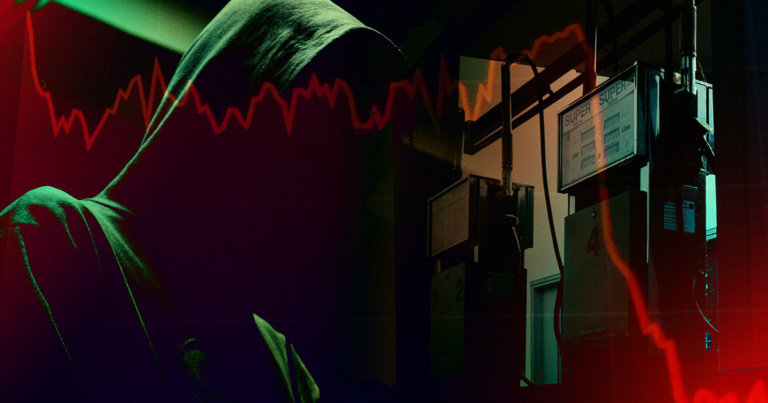 Ethereum gas fee tokens poor performers, Ponzi accusations
Ethereum gas fee tokens poor performers, Ponzi accusations Ethereum gas fee tokens poor performers, Ponzi accusations
Two fresh tokens of late have put focus on Ethereum gas fees and airdropped tokens to network users. The tokens in question have performed poorly and there are accusations of ponzi schemes.

Cover art/illustration via CryptoSlate. Image includes combined content which may include AI-generated content.
Without any sign of gas fees on Ethereum being less of a pain to users, the fees continue to be a hot topic, and a driving force and tailwind for so-called Layer-1 competitors such as Solana and Avalanche, both of whom boast much lower fees.
As Ethereum gas fees stir some frustration among its users, there’s perhaps no surprise some are trying to capitalize on the emotions. There are now at least two tokens that have gained a non-ignorable amount of attention from parts of the industry.
GAS down 94%
The GAS token was launched on the 29th of December, claimable to Ethereum users who spent a significant amount on gas fees in the past. Launched by the Gas DAO, the purpose of the token is, as per the DAO website, “Providing strategic insights and a voice for the network’s most active users.”
The “strategic insights” come from polls conducted among token holders.
“Gas DAO polls Ethereum users on behalf of protocols, leveraging the most diverse user base on Ethereum to create actionable Insights for protocols. Responses are cryptographically verifiable,” the website reads.
However, if the intention of the GAS token ever was to bring some comfort to hardened gas payers, it has thus far failed to do so. The market price of the GAS token fell by 75% on the opening day and has so far lost 94% of its initial value. The total market cap is now under $10 million.
The second shot at tokenizing frustrated gas payers comes from the builders of the otherwise excellent and quite useful and simple website fees.wtf. The site displays the total gas fees spent by the connected Ethereum wallet, a painful experience for some visitors, and a stark reminder of how much users spend on Ethereum.
WTF does the contract do?
The team behind fees.wtf has now, perhaps not surprisingly, released a token with the suitable symbol WTF. There are, however, according to Lefteris Karapetsas, founder of the portfolio tracker @rotkiapp, some things to look out for. As Karapetsas explains it in a series of tweets, claimants have to make two transactions to claim the tokens – the first one to “unlock” the token, in practice paying a fee to the issuers, and a second transaction to actually claim the tokens.
According to Karapetsas the “unlock function” sends 0.01 ETH to the WTF team each time it’s invoked.
“The brilliant thing here is if you use a referral you actually send part [of it] to the referrer!!! It’s a Ponzi”, Karapetsas tweets. “And then you still have to send another transaction to claim the tokens and the “NFT” [Karapetsas’ quotes].
The referral scheme is explained in this tweet by Louis TA, developer, and analyst at Messari.
Functions benefit the issuers
Though the two-transaction claiming setup may seem exotic, according to Karapetsas there are more functions skewed to benefit the team behind.
“Each time you transfer the token, you are paying a percentage fee to the WTF team. Yes, you heard that right. They get a cut out of each transfer/swap that happens”, Karapetsas tweets.
As per on-chain data, the unlock function alone has netted the WTF team a handsome ETH 200 ($652,000) in just a few days. As for the transfer fee on each transfer, which cuts 4% according to the smart contract, the developers have so far received WTF 4,098,132, or about $143,000.
As Karapetsas explains, the airdrop, or the smart contracts governing it, doesn’t do any direct harm, it doesn’t steal anything, rather one might call the setup a foul play, and if Ethereum gas fees are high, claimants run the risk of losing out on the “free money” airdrop.
The WTF token has dropped almost 88% since the release and has a total market cap of less than five million dollars.























































